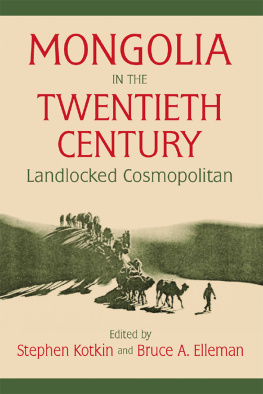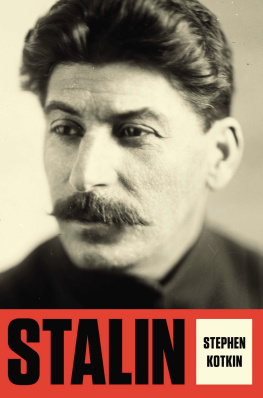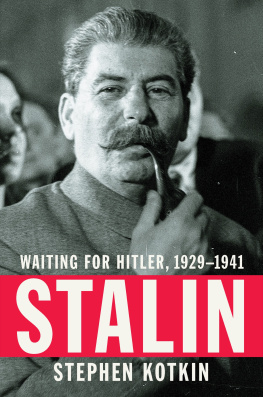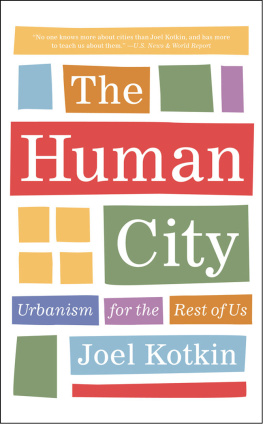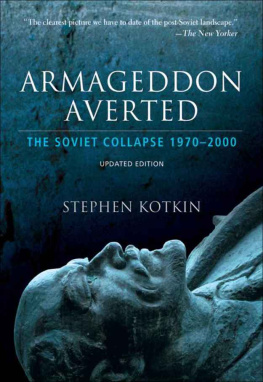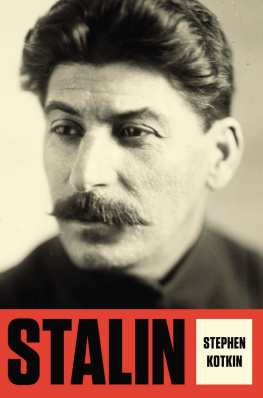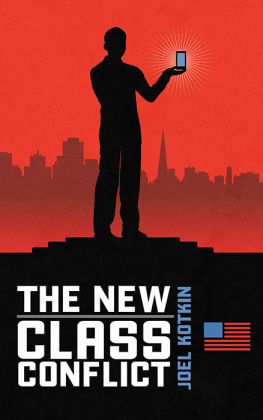Kotkin - Magnetic Mountain
Here you can read online Kotkin - Magnetic Mountain full text of the book (entire story) in english for free. Download pdf and epub, get meaning, cover and reviews about this ebook. year: 1997;1995, publisher: University of California Press, genre: Politics. Description of the work, (preface) as well as reviews are available. Best literature library LitArk.com created for fans of good reading and offers a wide selection of genres:
Romance novel
Science fiction
Adventure
Detective
Science
History
Home and family
Prose
Art
Politics
Computer
Non-fiction
Religion
Business
Children
Humor
Choose a favorite category and find really read worthwhile books. Enjoy immersion in the world of imagination, feel the emotions of the characters or learn something new for yourself, make an fascinating discovery.

Magnetic Mountain: summary, description and annotation
We offer to read an annotation, description, summary or preface (depends on what the author of the book "Magnetic Mountain" wrote himself). If you haven't found the necessary information about the book — write in the comments, we will try to find it.
Magnetic Mountain — read online for free the complete book (whole text) full work
Below is the text of the book, divided by pages. System saving the place of the last page read, allows you to conveniently read the book "Magnetic Mountain" online for free, without having to search again every time where you left off. Put a bookmark, and you can go to the page where you finished reading at any time.
Font size:
Interval:
Bookmark:
Stalinism as a Civilization
STEPHEN KOTKIN

The publisher gratefully acknowledges the contribution provided by the General Endowment Fund of the Associates of the University of California Press.
University of California Press
Berkeley and Los Angeles, California
University of California Press, Ltd.
London, England
1995 by
The Regents of the University of California
First Paperback Printing 1997
Kotkin, Stephen.
Magnetic mountain : Stalinism as a civilization / Stephen Kotkin.
p. cm.
Includes bibliographical references (p. ) and index.
ISBN 978-0-520-20823-0 (pbk.: alk. paper)
1. Magnitogorsk (Russia)History. 2. Soviet UnionPolitics and government. 3. CommunismSoviet UnionCase studies.
1. Title.
DK651.m159K675 1995
947.87dc20
94-11839
CIP
Printed in the United States of America
10 09 08
12 11 10 9
The paper used in this publication meets the minimum requirements of ANSI/NISO Z39.48-1992 (R 1997) (Permanence of Paper). 
A version of chapter 2 was first published in William Rosenberg and Lewis Siegelbaum, eds., Social Dimensions of Soviet Industrialization (Bloomington: Indiana University Press, 1993); of chapter 4 in William Brumfield and Blair Ruble, eds., Russian Housing in the Modern Age: Design and Social History (New York: Cambridge University Press, 1993); and of chapter 5 in Lewis Siegelbaum and Ronald Suny, eds., Making Workers Soviet: Power, Class, and Identities (Ithaca: Cornell University Press, 1994).
Magnetic Mountain


Magnitogorsk, 1939
To M. F.
I propose a toast to simple, ordinary, modest people, to the little cogs who keep our great state machine in motion.... No one writes about them, they have no high titles and few offices, but they are the people who maintain us.... I drink to the health of these people.
Joseph Stalin
Photographs follow
MAPS
TABLES
This project began as a Ph.D. dissertation at the University of California, Berkeley, where I had the great fortune of being trained in history by an extraordinary group of scholars, including Lynn Hunt, Susanna Barrows, Martin Jay, Jan de Vries, and many others. Had I not met Reginald Zelnik, my thesis advisor, I might never have moved from the study of Western and Central Europe to that of Russia. Reggies scholarship and professional behavior have been an inspiration, and his guidance outstanding. My interest in the Soviet period was aroused and nurtured by Martin Malia, my other thesis advisor, whose thinking has left a deep impression.
At Berkeley, my conceptual tools were sharpened by contact with many people outside the history department, particularly Leo Lowenthal, Gregory Grossman, Victoria Bonnell, David Hooson, and Paul Rabinow. Much stimulation was provided by fellow graduate students in various fields, including David Horn, Jonathan Simon, Scott Busby, Alex Levine, and, above all, Keith Gandal.
At Princeton, where I have taught since 1989, I have benefited from the exceptional breadth of learning and warm-hearted support of my colleagues. Special mention goes to Gyan Prakash, who read and commented on some of the chapters and has always been ready to engage in illuminating discussions on a broad range of subjects; Phil Nord, who offered penetrating comments on my introduction and introduced me to his views on nineteenth-century Europe in a seminar we co-taught; Arno Mayer, who challenged me with his interpretations of Europe in the twentieth century; and Mark Mazower, who has left Princeton for Sussex but still suffered through more versions of more chapters of this book than anyone else, and yet through it all never tired of sharing ideas and offering much-needed companionship.
Princetons Carl Schorske, now retired, may not know it, but reading his magnificent book on Vienna as an undergraduate at the University of Rochester (in a course taught by his former student, William McGrath) inspired me to go on to graduate school not in my first major, English literature, but in European history.
Being able to spend parts of two academic years at Columbia Universitys Harriman Institute, first as a student, then as a fellow and adjunct assistant professor, brought me into contact with Richard Wortman, Rick Ericson, and Mark von Hagen, who has generously guided and encouraged my work from the beginning. Marks comments on various versions of this book and his insights into the history of the USSR have proved invaluable, as has his friendship.
I owe a large debt to the University of California Press, its editorial director, Sheila Levine, and its general director, Jim Clark, who have shown exceptional interest in my work and made available the resources of their fine publishing house. Dore Brown was a superb project editor. Three readers engaged by the press, R. W. Davies, John Barber, and Lewis Siegelbaum, made important suggestions on shaping the book and have commented on my work or helped me in other forums.
My thanks also to Blair Ruble for his support over the years; to Sheila Fitzpatrick, who despite my obvious attempts to revise her views has always been helpful and encouraging; and to Moshe Lewin, whose work I have also been wrestling with for years and who welcomed me during a pilgrimage I made to him while still an impressionable graduate student.
Many of my ideas were refined in conversation with graduate students in seminars at Princeton and Columbia. I thank them for their remarks, questions, and insights.
The manuscript was completed during a sabbatical at the University of Tokyos Institute of Social Science, for which I am most grateful to Wada Haruki, who introduced me to the Japanese community of scholars on Russia. The opportunity to present my ideas to Tokyos Russian Research Society, the European history seminar at Waseda University, and the Slavic Center of Hokkaido University in Sapporo enabled me to think through many problems of interpretation. Thanks to Kazuhiko Takahashi, Ishii Norie, Takao Chizuko, Nakai Kazuo, Minagawa Shugo, and Matsuzato Kimitaka.
Several chapters of this book were also presented at conferences in Ann Arbor and East Lansing, Michigan, and at the University of Birmingham, England. For their invitations, criticisms, and suggestions I am grateful to the organizers and participants of these sessions, especially William Rosenberg, Ron Suny, Lewis Siegelbaum, Robert Johnson, Laura Engelstein, Michael Burawoy, Sonya Rose, Bob Davies, and John Barber.
This study was made possible by the opportunity to conduct archival research and fieldwork in the former USSR during the opening up after 1985. In the spring of 1987, while on a ten-month research trip, I had the chance to spend six weeks in Magnitogorsk. I returned in 1989 and again in 1991. The opportunity to walk the streets and talk with surviving residents from the 1930s, local archivists, and many others influenced my views significantly. To see the city struggling with the legacy of the 1930s some fifty years later put the events of the past into very sharp focus.
In Magnitogorsk, the number of people who assisted my research was legion. I will never forget Valerii Kucher, Volodia Mozgovoi, Nina Kondratkovskaia, Galina Osolodkova, Vilii Bogun, Mikhail Lysenko, and, above all, Zhena and Tamara Vernikov. The photographer Anatolii Kniazev made available to me the vast collection of old photographs owned and preserved by the steel plant. The team of archivists in Magnitogorsk really looked after me, despite the restrictions that were placed over them by superiors in Moscow. Having finished this book, I remain overwhelmed by the warmth and generosity extended to me, even as I relentlessly investigated a painful decade of another countrys history.
Font size:
Interval:
Bookmark:
Similar books «Magnetic Mountain»
Look at similar books to Magnetic Mountain. We have selected literature similar in name and meaning in the hope of providing readers with more options to find new, interesting, not yet read works.
Discussion, reviews of the book Magnetic Mountain and just readers' own opinions. Leave your comments, write what you think about the work, its meaning or the main characters. Specify what exactly you liked and what you didn't like, and why you think so.


